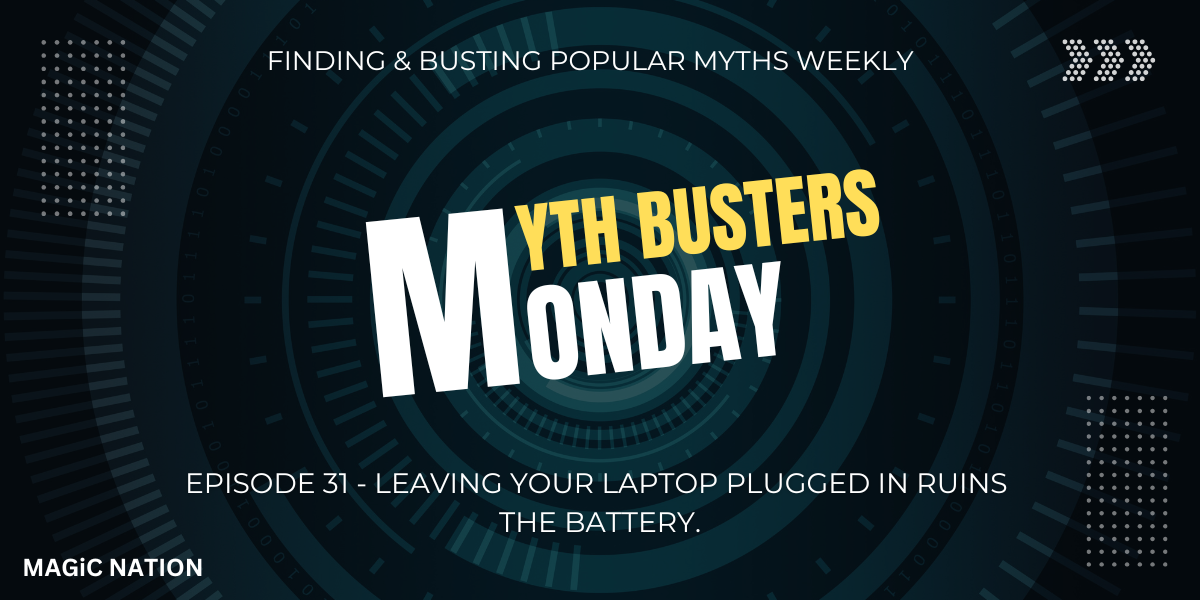 Hey Explorers, What's up!
Hey Explorers, What's up!Today I am here with the another episode of MBM. When you delete a file on your computer and then empty the Recycle Bin, most people assume that the file is gone forever. But is it really? In this episode of Myth Busters Monday, we’ll explore the common belief that deleting files from the Recycle Bin permanently removes them and uncover the truth about what actually happens to your data.
Emptying the Recycle Bin Permanently Erases Files.The Myth
 Most people think that once a file has been moved to the Recycle Bin and the bin is emptied, the file is completely erased from the computer and cannot be recovered. This is a popular belief because it seems logical: if the file isn’t visible and the bin is empty, it must be gone forever, right?
Most people think that once a file has been moved to the Recycle Bin and the bin is emptied, the file is completely erased from the computer and cannot be recovered. This is a popular belief because it seems logical: if the file isn’t visible and the bin is empty, it must be gone forever, right?Unfortunately, that’s not how digital storage works. In reality, even after you empty the Recycle Bin, the file is often still on your hard drive and can be recovered with the right tools.
When you delete a file from your computer, it gets moved to the Recycle Bin. This is just like moving it to a temporary storage folder; the file is still there, taking up space on your hard drive. You can easily restore the file if you change your mind.What Actually Happens When You Delete a File?
 However, when you empty the Recycle Bin, the file disappears from view, and your computer marks the space where the file was stored as available for new data. But here's the key point: the actual data of the file isn’t immediately erased. The operating system just removes the reference to the file, so it no longer appears in the folder structure, but the file’s data remains intact until it's overwritten by something else.
However, when you empty the Recycle Bin, the file disappears from view, and your computer marks the space where the file was stored as available for new data. But here's the key point: the actual data of the file isn’t immediately erased. The operating system just removes the reference to the file, so it no longer appears in the folder structure, but the file’s data remains intact until it's overwritten by something else.
The reason deleted files can often be recovered is that the data physically remains on the hard drive until the system writes new information over it. Think of it like crossing out a word in a notebook: even though the word is no longer "visible," you could still read it unless you rip the page out or write over it.Why Are Deleted Files Recoverable?
This is why specialized software, called data recovery tools, can often restore files that have been "deleted." These tools scan the hard drive for traces of deleted files and try to piece them back together. Unless new data has been written over the deleted file’s space, it’s often possible to recover it.
1. Myth: Emptying the Recycle Bin Permanently Erases DataDebunking the Myth: Deleting Isn’t Enough
- Reality: Emptying the Recycle Bin only removes the file's reference from the system, making it invisible to you. The actual data remains on the hard drive until it is overwritten by new files. As long as the data hasn’t been overwritten, it can often be recovered using data recovery software.
2. Myth: Deleted Files are Gone Immediately
- Reality: Deleted files can persist on your computer for a long time, depending on how much new data you save afterward. If you delete a file and don’t add any large files afterward, the old data may remain recoverable for weeks or even months.
Why does this matter? Well, this can be a big deal if you’re getting rid of sensitive files. For example, if you're selling or donating an old computer, simply deleting your personal files from the Recycle Bin might not be enough to protect your privacy. Someone could use data recovery software to bring back files that you thought were gone, including personal documents, photos, or even financial information.The Risks of Incomplete Deletion
How to Permanently Delete Files?
 If you want to ensure that your files are truly gone and not recoverable, here are some steps you can take:
If you want to ensure that your files are truly gone and not recoverable, here are some steps you can take:
- 1. Use File Shredding Software: Tools like Eraser or CCleaner have a file shredding feature that overwrites the deleted file’s space on the hard drive, making it nearly impossible to recover.
- 2. Enable Drive Encryption: Encrypting your hard drive ensures that even if someone tries to recover deleted files, they won’t be able to read the data without the encryption key. Tools like BitLocker (for Windows) or FileVault (for macOS) can encrypt your entire drive.
- 3. Use “Secure Delete” Options: Some operating systems offer built-in ways to securely delete files. For example, macOS has an option called Secure Empty Trash, which ensures that the deleted data is overwritten.
- 4. Wipe Your Hard Drive: If you’re planning to sell or give away your computer, consider wiping the entire hard drive using specialized software like DBAN (Darik's Boot and Nuke). This will overwrite all data on the drive, making recovery almost impossible.
Emptying the Recycle Bin doesn’t mean your files are gone for good. In fact, unless you take extra steps to securely delete your data, those files may still be lingering on your hard drive and could be recovered using special tools. So, if you're dealing with sensitive information, it’s important to take the right measures to ensure your files are permanently deleted.The Bottom Line
In this case, the myth that emptying the Recycle Bin permanently removes your files is busted.
Stay tuned for more episodes of Myth Busters Monday, where we continue to explore and debunk common misconceptions in the tech world! Till then, see you soooonnnn...















